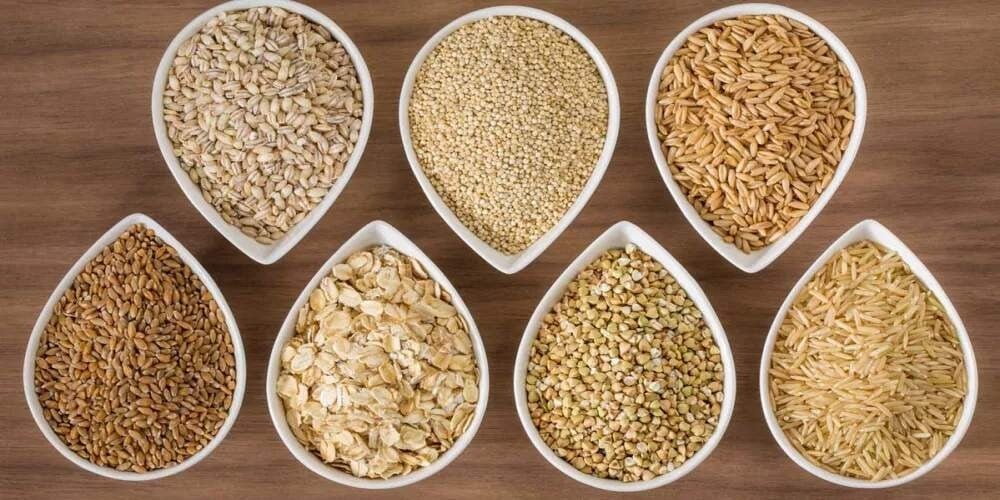
Types of healthy grains
You can learn about the best types of healthy grains from the Atara store in Saudi Arabia and learn about the benefits of whole grains that the Atara store provides you with. Here are some types of healthy grains:
- Rice is one of the most important sources of energy. It is a healthy grain and is mainly used in cooking and food.
- Wheat is a type of healthy grain and seed that is used to produce bread, pasta, and whole grains. Wheat helps raise cholesterol levels and lower blood pressure.
- Oats help improve the body's metabolism because it contains vitamin B. Oatmeal is also a good source of fiber and is commonly used in preparing oatmeal pancakes and processed cereals.
- Corn: Yellow corn contains many health benefits, and corn is rich in vitamin beta-carotene, which is a powerful antioxidant that works to prevent wrinkles and increase the freshness and vitality of the skin.
- Chia: Chia seeds are commonly used in many foods and drinks. Chia seeds contain 18% of the body’s daily need for calcium, and are a good source of fiber and omega-3 fatty acids.
- Fennel: Fennel can be used to treat constipation, as fennel relaxes the muscles of the digestive system. It is also able to cleanse the body and remove toxins that cause constipation. It is famous for its digestive benefits and effective treatment for indigestion.
- Quinoa: Quinoa is a whole grain and an excellent source of protein and fiber. One of the benefits of quinoa is that it is an excellent source of antioxidants.
- Barley is especially important for those who want to lose excess weight and is used in some communities to make healthy bread.
These grains can be used to prepare a variety of foods, and provide many essential nutrients such as carbohydrates, protein, fiber, vitamins and minerals.
What are the benefits of whole grains?
Whole grains contain the entire part of the grain, including the outer coat (seed shell). When consumed regularly , herbs and whole grains can offer many health benefits due to providing a wide range of important nutrients.
Here are some benefits of whole grains:
- Whole grains contain fiber that helps support the digestive system, and they have a high percentage of fiber compared to incomplete grains. Among the grains that contain high fiber are freekeh, corn, rice, and wheat.
- Whole grains contain a variety of vitamins, as they are a good source of vitamins and minerals such as vitamin B and minerals such as iron, magnesium and zinc.
- Some research shows that eating whole grains, including bulgur and oats, can contribute to lowering harmful cholesterol levels, which reduces the risk of heart disease.
- A diet rich in whole grains can help with weight management thanks to the abundance of fiber contained in whole grains, which gives a feeling of fullness for a longer period. You can learn more about whole grains and the extent of the benefits of seeds on the body through Atara blogs .
- Whole grains reduce the risk of diabetes. Whole grains help improve insulin sensitivity and glucose metabolism, and slow down the absorption of food, which prevents high blood sugar. Some research indicates that consuming whole grains can reduce the risk of type 2 diabetes. 2.
- Whole grains help promote overall health, as eating whole grains can be linked to improving heart health, reducing the risk of obesity, and improving digestive system functions.

